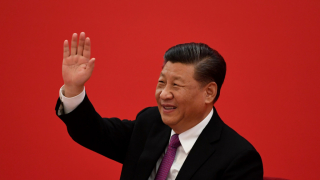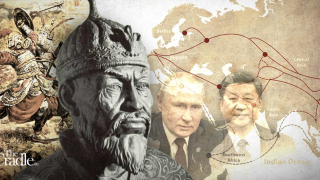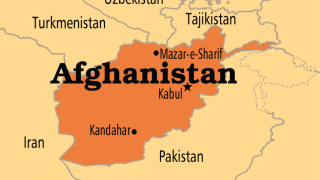Operation Vengeance
May 2020 is being marked by America’s growing Sinophobia and the development of special measures against China. This was actually clear at the end of April, when there was a marked escalation in the rhetoric and muscle flexing of high-ranking US officials.
On 27 April, US President Donald Trump stated: “We’re doing very serious investigations… And we are not happy with China. We are not happy with that whole situation because we believe it could have been stopped at the source, it could have been stopped quickly, and it wouldn’t have spread all over the world.” And when asked by a journalist whether the US was going to do the same as Germany, which had allegedly sent a €130 billion bill to China for coronavirus-related damages, Trump replied: “Well, we can do something much easier than that… And we’re talking about a lot more money than Germany is talking about.”
Although the German government never issued such a bill and the compensation story was cooked up by the liberal German newspaper Bild, a number of media outlets have started running with Trump’s statements about measures against China. America has actually been talking about the need to fine China since March, however. Speculation about what the US will do has gone as far as the possible cancellation of America’s more than trillion-dollar debt to China. Some US states have already filed class action lawsuits.
China also featured in US State Secretary Mike Pompeo’s remarks to the press on 29 April, when he announced that China and Russia will be able to sell “significant conventional weapons systems to the Iranians” in October of this year, while, for its part, Iran is “conducting terror campaigns by Lebanese Hizballah and Iraqi Shia movements”. And in response to a question on China’s additional funding to WHO, Pompeo notes that the Chinese foreign ministry and various Chinese media outlets are all spreading disinformation about the coronavirus, stressing that “this isn’t the first time that we’ve had a virus come out of China.”
In parallel with verbal attacks, the Pentagon has sent warships to the South China Sea. This time around, the US is adhering to the legend of promoting “freedom of navigation”. On 28 April, a US Navy destroyer called the Barry approached the Paracel Islands, which are known in China as the Xisha Qundao. The following day, the guided-missile cruiser USS Bunker Hill sailed through the Spratly Islands (Nansha Qundao).
China issued a warning and asked the US military to leave the region.
The myth that the coronavirus is Chinese made is perfect justification for putting yet more pressure on China. Washington wants to force Beijing to play by its rules. And these don’t just apply to two countries, but to the distribution of power across the planet as a whole.
The thoughts of retired United States Army lieutenant general Herbert McMaster, who served as Donald Trump’s national security adviser between 2017 and 2018, seem rather symptomatic. In the May issue of The Atlantic, McMaster published an article on Chinese containment. It is unlikely that the timing just happened to coincide with the current escalation.
Herbert McMaster
In the article, McMaster points out that China has a particular view of the world and of history. It begins in a rather naive tone. McMaster writes: “China has become a threat because its leaders are promoting a closed, authoritarian model as an alternative to democratic governance and free-market economics. The Chinese Communist Party is not only strengthening an internal system that stifles human freedom and extends its authoritarian control; it is also exporting that model and leading the development of new rules and a new international order that would make the world less free and less safe. China’s effort to extend its influence is obvious in the militarization of man-made islands in the South China Sea and the deployment of military capabilities near Taiwan and in the East China Sea. But the integrated nature of the Chinese Communist Party’s military and economic strategies is what makes it particularly dangerous to the United States and other free and open societies.”
He also mentions the achievements of the Ming dynasty and the rise of China’s sea power, whose fleet was prowling the oceans more than a hundred years before the discoveries of Christopher Columbus. That is why China must be perceived as a powerful empire. Right now, according to McMaster, “China’s leaders believe they have a narrow window of opportunity to strengthen their rule and revise the international order in their favor.” At the same time, “the Chinese Communist Party’s goals run counter to American ideals and American interests.”
McMaster believes that China is pursuing a policy of “co-option, coercion, and concealment”. In addition, Beijing is pushing three complementary plans: “Made in China 2025”, “Belt and Road Initiative”, and “Military-Civil Fusion”. The first is aimed at making China completely independent in science and technology. The second relates to infrastructure investments across the Indo-Pacific region, Eurasia, and other parts of the world. And the third is the most totalitarian of the three and involves creating a global intelligence network engaged in espionage and cyber-attacks.
The article then discusses the need to develop an appropriate response strategy. McMaster writes that “[a]ny strategy to reduce the threat of China’s aggressive policies must be based on a realistic appraisal of how much leverage the United States and other outside powers have on the internal evolution of China. The influence of those outside powers has structural limits, because the party will not abandon practices it deems crucial to maintaining control. But we do have important tools, quite apart from military power and trade policy.”
These tools include liberal ideas such as the free exchange of information, diversity and tolerance in free and open societies, and Chinese dissidents who have fled the country.
McMaster also calls for the US to take harsh measures against any Chinese company involved in human rights abuses in China; to defend itself against Chinese intelligence agencies and agents of influence; and to engage all Chinese dissidents and help a large number of young people to leave the country so that they embrace the ideas of Western liberalism.
Francis Sempa, a federal prosecutor and well-known author of numerous books on geopolitics, compares McMaster’s proposal to the “long telegram” written by George Kennan in 1947 under the pseudonym “X”, where he proposed a grand strategy for the containment of possible Soviet-communist expansionist tendencies, which led to the formation of NATO and other US-led military alliances.
Sempa notes a resemblance to Kennan’s proposals to focus on US strengths such as freedom of expression, freedom of the press and the rule of law, which McMaster refers to as “an extraordinary competitive advantage, a great engine of innovation and prosperity.”
Sempa also broadens and deepens McMaster’s perspective, noting that “McMaster’s timid policy recommendations will not lead to the gradual break-up or mellowing of Chinese Communist power. A policy of firm and vigilant containment based on an understanding of Chinese history and Indo-Pacific geography would be more effective and more consistent with the traditions of U.S. foreign policy that recognize the need to prevent a hostile power from controlling the key power centers of the Eurasian landmass.”
It is obvious that the US sees modern China, with its “Belt and Road” and “Digital Silk Road” infrastructure initiatives that extend deep into Eurasia, as a “hostile power”.
In the near future, therefore, one should expect US efforts to promote an anti-Chinese strategy with traditional partners in the region – South Korea, India and Taiwan – as well as ASEAN countries. There will be increased attention on the countries of Central Asia. And in the European theatre, of course, Washington will try its hardest to enlist the support of its satellites in countering Chinese economic expansion.













